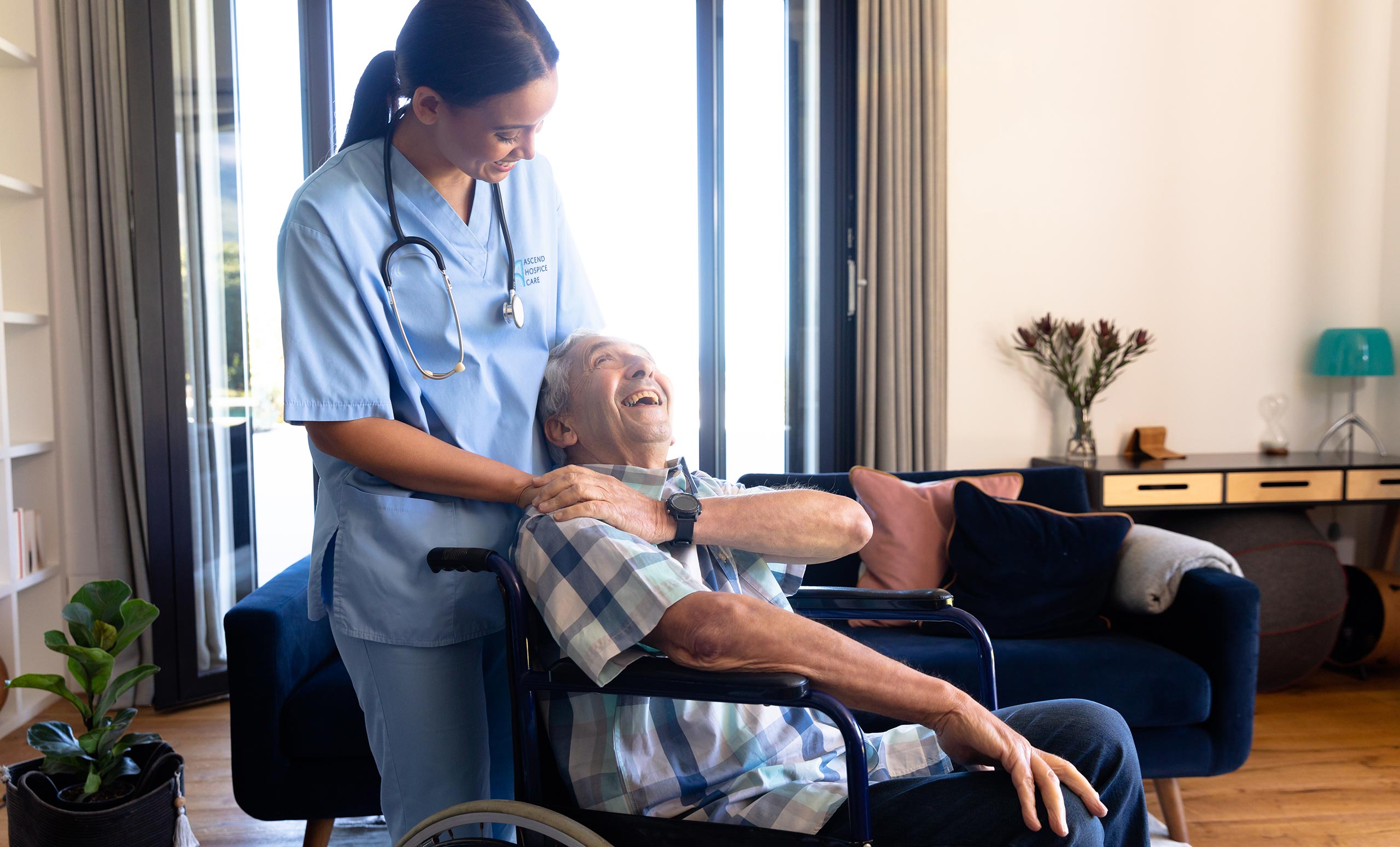Recently, the concept of end-of-life with dignity has gained significant attention, particularly within hospice care. The evolution of this idea is closely linked to the medicalization of passing and the subsequent demand for compassionate and dignified end-of-life experiences. At the core of these conversations is the many-sided nature of dignity, often interlaced with ideas of euthanasia and the pursuit of a peaceful, natural passing.
Dignity is a universal characteristic inherent in every human being. Yet, as patients approach the end of their lives, dignity becomes an extrinsic quality susceptible to external factors. Preserving patient dignity depends on healthcare providers respecting individual standards and values without imposing their own beliefs.

Dignity in Hospice Care
As Hospice Care providers, our core lies in understanding and implementing dignity-conserving practices. The fundamental principle is acknowledging and upholding the uniqueness of each patient’s journey towards the inevitable. Dignity in end-of-life care is not a one-size-fits-all concept but a personalized approach that considers the physical, emotional, and spiritual extents of the patient’s experience.
The main ingredients of dignity in hospice care are love and respect in the caregiving process. This holistic approach goes beyond symptoms and pain management and emphasizes emotional support, empathy, and compassionate communication. The ultimate purpose of this holistic approach, where patients are not only treated for their physical symptoms but embraced with kindness, is to create an environment of love and understanding.

Patient’s Dignity and Respect
It is essential to note that people do not enter a hospice care program to die. Dignity in hospice care does not mean hastening death but rather enhancing the quality of the time remaining. It highlights creating meaningful moments and shared reflections with everyone involved.
Patient dignity and respect are inseparable components of quality hospice care. This involves empowering patients to actively participate in decisions about their care, allowing them to maintain a sense of autonomy even in the face of a progressive illness. We are proud to be part of this supportive network that values one’s life journey by facilitating open dialogues, ensuring that the patient’s voice is heard and their preferences are honored.
At Ascend Hospice Care, we recognize end-of-life dignity as a dynamic and evolving aspect of the human experience. Therefore, dignity care is a continual commitment to understanding, adapting, and changing alongside the patient. The essence of dignity becomes a guiding light, illuminating the path toward a compassionate and dignified end-of-life experience.




